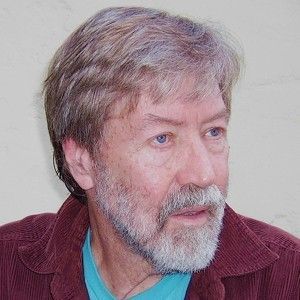Biography
ANDREW RUDIN [roo-DEEN] (b. 1939) is a Texas-born composer of Swedish ancestry whose many contributions to the literature of electronic music brought him early recognition. Critic Michael Caruso, reviewing his Violin Concerto in 2007, remarked “Andrew Rudin has been an important presence in the local contemporary music scene for the past four decades.” His Il Giuoco was the first large-scale work for Moog Synthesizer, a U.S. representative in the 5th Paris Biennale. His synthesized music is heard in the sound-track of the film Fellini: Satyricon and his Tragoedia was the second of Nonesuch Records’ electronic music commissions, described by critic Alfred Frankenstein as “The best large-scale electronic work I have ever heard. In Andrew Rudin's hands the electronic idiom finally comes of age.”
His interest in theatrical music has resulted in ballets for the Pennsylvania Ballet, Murray Louis, Dance Theatre Workshop, Louis Falco, Jeff Duncan, London Contemporary Dance Theatre, and four collaborations with Alwin Nikolais, as well as incidental music for Tennessee Williams’ Outcry and numerous scores for PBS Television. In 1972, his opera The Innocent was produced in Philadelphia by Tito Capobianco. His orchestral and chamber music has been performed throughout the United States by such artists as pianists Lydia Artymiw, Beth Levin, Steve Beck and Marcantonio Barone, violinists Diane Monroe and Miranda Cuckson, violist Brett Deubner, cellists Sam Magill and Eugene Moye, percussionist Anthony Orlando, of the Philadelphia Orchestra, flutists Mimi Stillman and Patricia Spencer, and clarinetist Ronald Reuben. Recent concertos for Violin, Viola, and Piano have brought him renewed recognition.

“Extroverted, engaging and driven by an almost heroic sense of drama, Rudin has a gift for the kind of gesture that grabs you by the ears and won’t let go.”, wrote the Washington Post at the 2008 premiere of his Piano Concerto. Of the Viola Concerto, Fanfare magazine declared “The concerto is an important addition to the none-too-large repertoire for this instrument.” He is the recipient of fellowships from Yaddo, The MacDowell Colony, Ucross Foundation, Virginia Center for the Creative Arts and The Pennsylvania Council on the Arts, among his many grants and awards. His teachers have included George Rochberg, Karlheinz Stockhausen, Ralph Shapey, Kent Kennan, and Paul Pisk.
He has taught on the faculties of the Juilliard School and The Philadelphia College of the Performing Arts, where he was founding director of the Electronic Music Center. He is retired from the faculty of The University of the Arts (Philadelphia), where he taught from 1964 to 2001. His music may be heard on the Centaur, Innova, and ERM labels, and is published by Associated Music Publishers as well as Skåne Hill Music. The composer’s professional affiliation is BMI.
